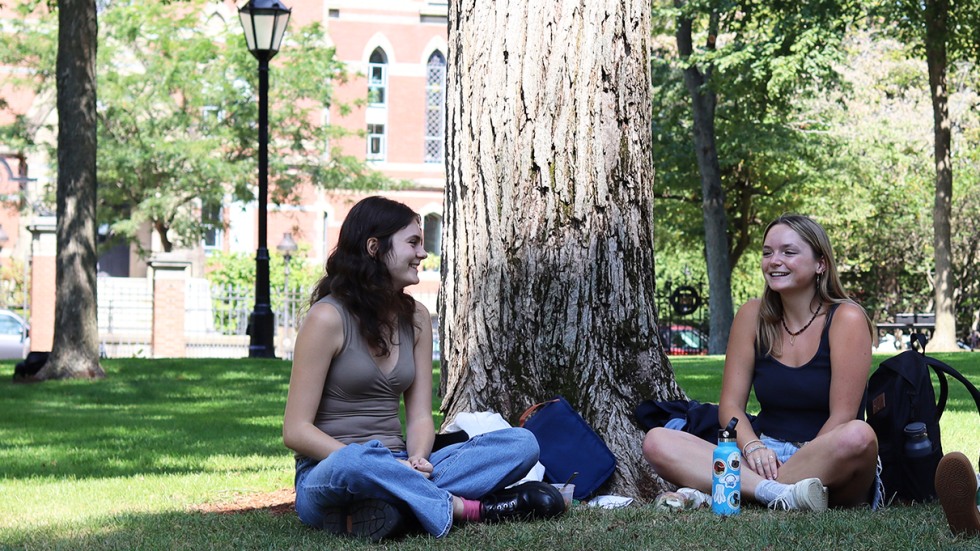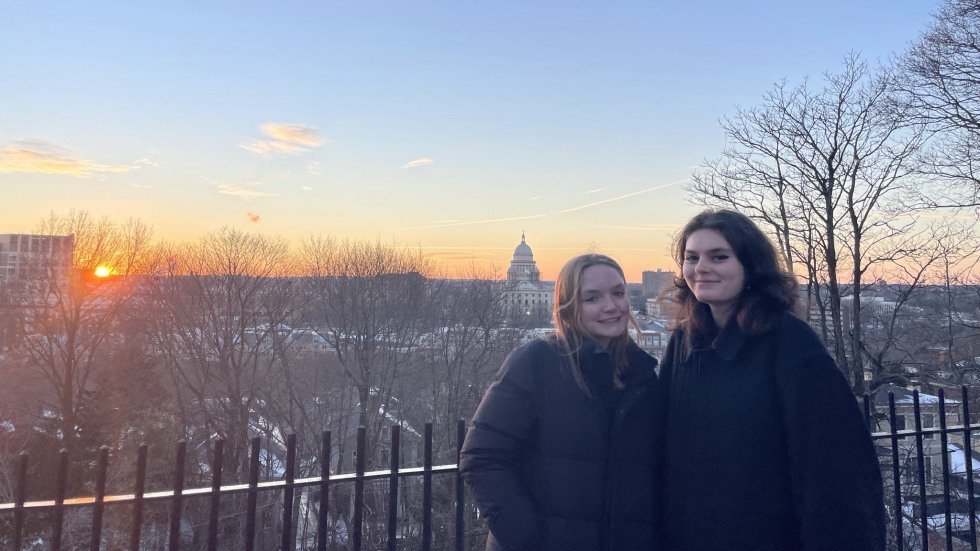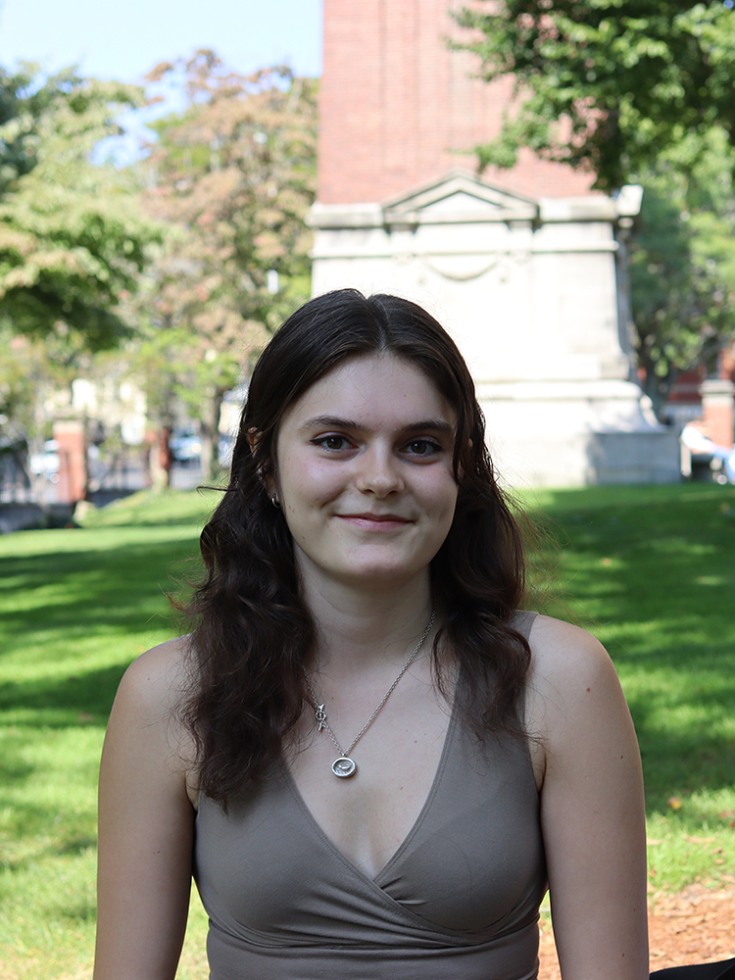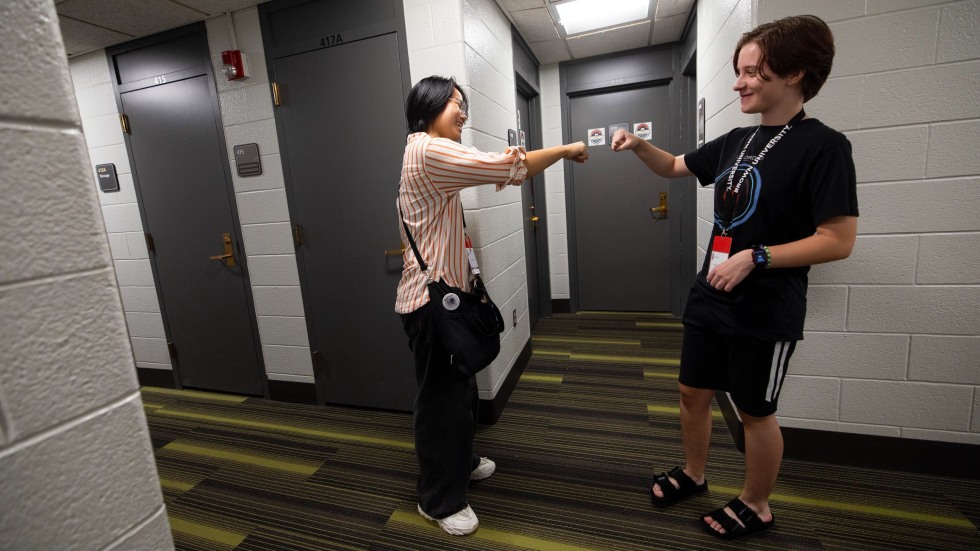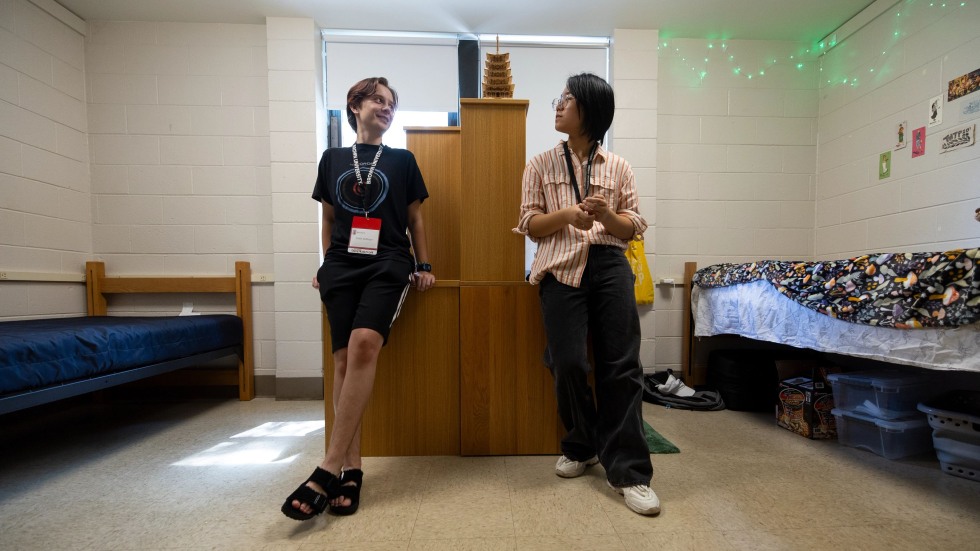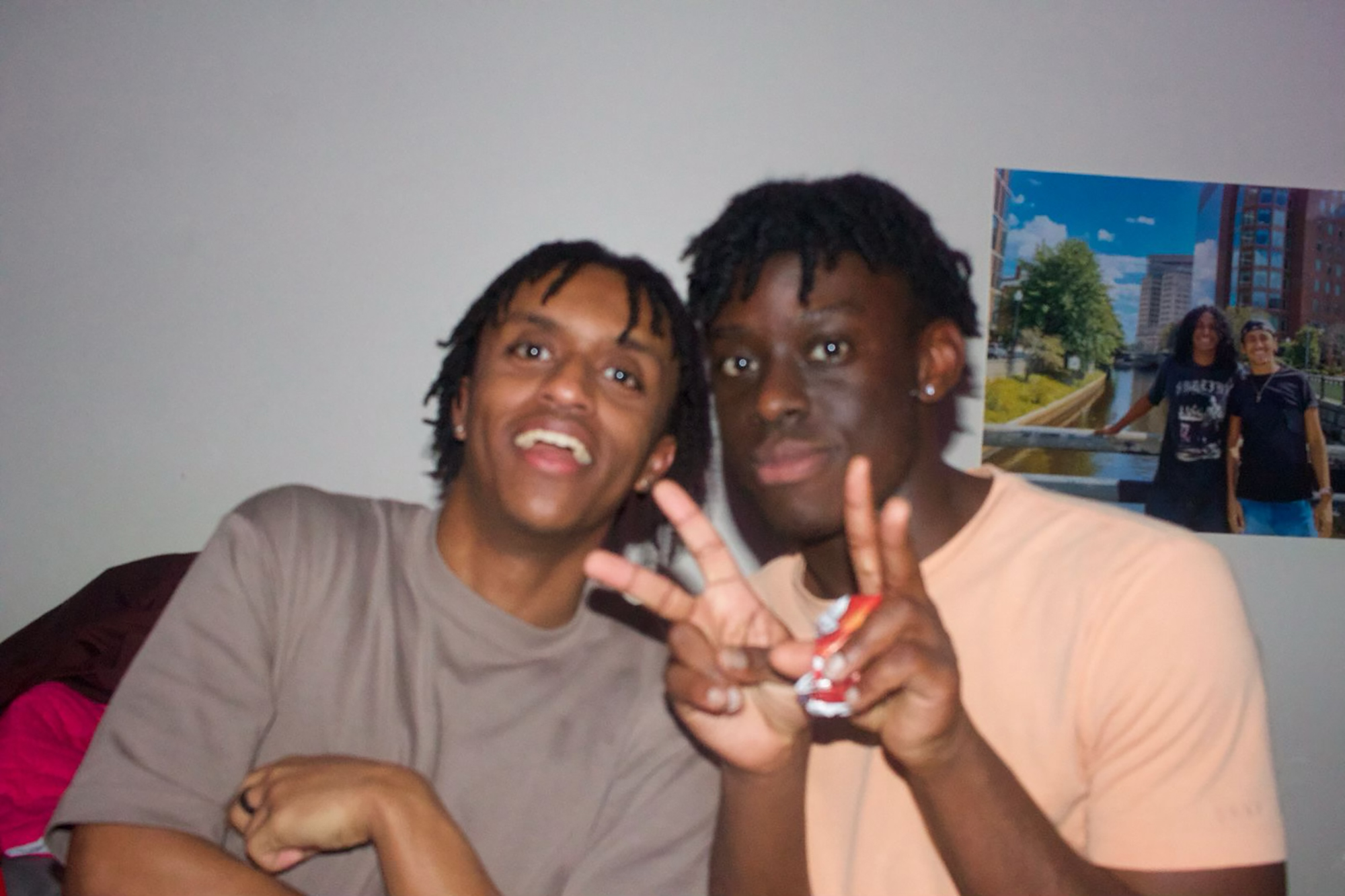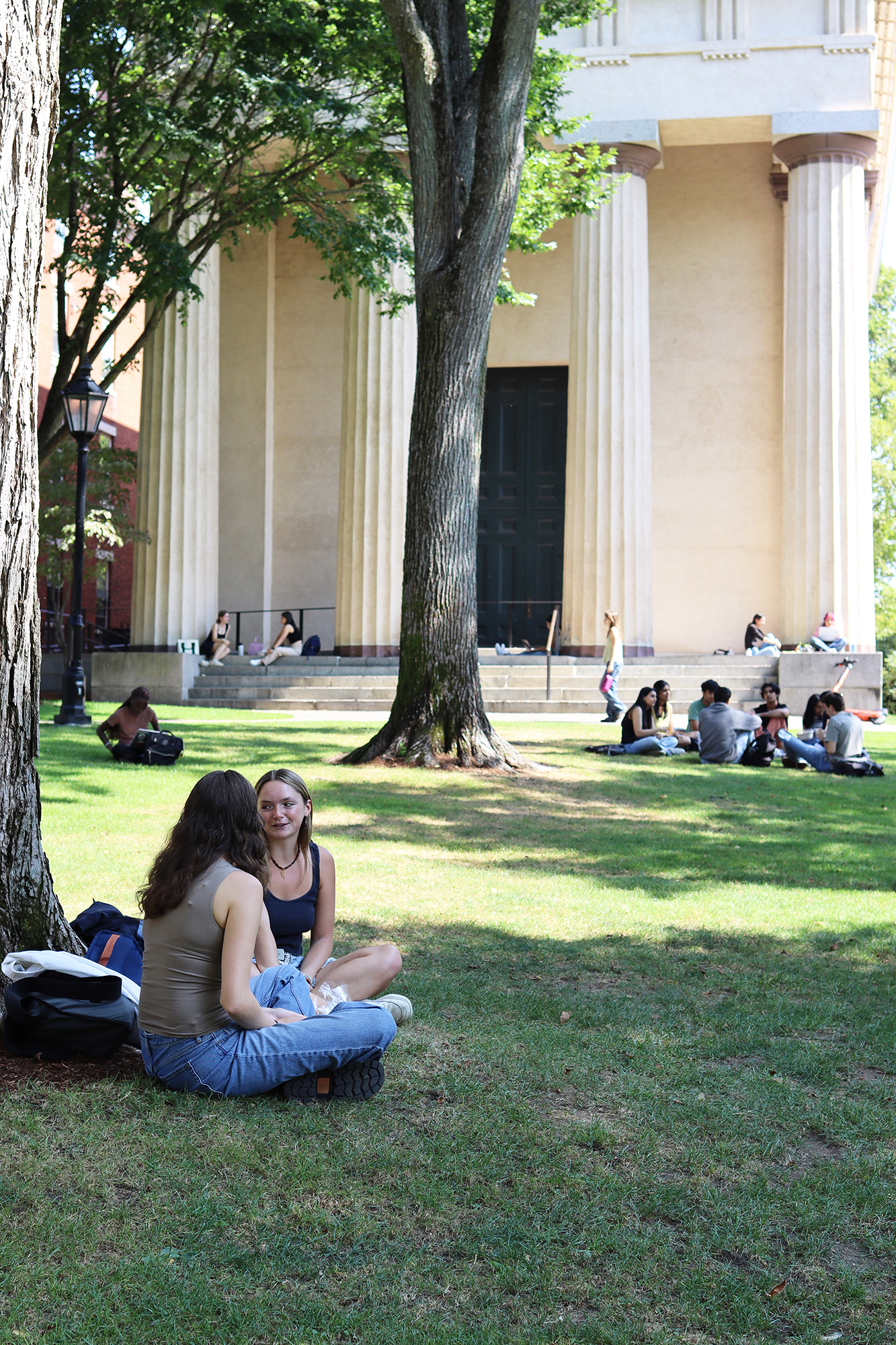PROVIDENCE, R.I. [Brown University] — When Kaitlyn Lucas was a high school student in San Francisco considering colleges, she was daunted by the “beyond stressful” prospect of choosing her future roommate — one reason she felt not just excitement when she committed to Brown, but also a sense of relief.
In recent decades, many universities have tried to temper the anxieties that can come with living with a random roommate by offering new students the option to select a roommate in advance, often one they have identified through social media. But at Brown, the persistent practice of randomly pairing roommates is part of what makes the student life experience magical, according to Brenda Ice, senior associate dean of Residential Life.
“The process creates these moments of ‘accidental interaction,’” Ice said. “I think that’s the beauty of what we create — and a strong residential program understands that.”
Lucas, now a senior at Brown concentrating in economics, remains thankful she was randomly paired with her first-year roommate, Zoe Rudolph-Larrea, who is from Providence. While they both worried initially that they might not share enough in common, the pair bonded quickly. Four years later, they continue to live together.
“I did not think we were going to get along — I feel like it’s hard to judge someone from Instagram, and you always pick out the differences first,” reflected Rudolph-Larrea, a senior concentrating in urban studies and architecture. “I felt like we came from very different places initially.”
As they began living together in the Champlin residence hall, those concerns quickly disappeared.
“By the third week, we were attached at the hip — people joked that we were inseparable,” Rudolph-Larrea said. “There is no way we would have met online, and I don’t think we’d have encountered each other on campus if we hadn’t lived together.”
As it turns out, research suggests that random-roommate policies could be a strategy for schools to encourage interactions between students from different backgrounds. That comes as no surprise to Ice, who said Brown’s long-held practice of randomly pairing roommates dates back decades.
“What we do supports the broader mission of Brown, and it aligns with our Open Curriculum and student-centered learning,” Ice said. “Our residential program begins with Brown’s vision and mission and is a natural extension of that.”
